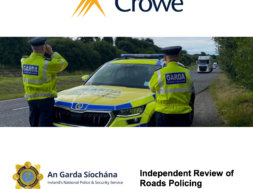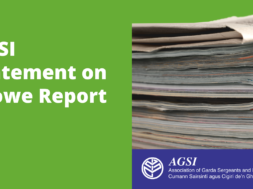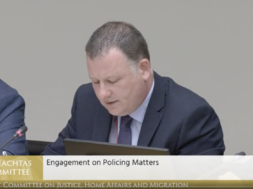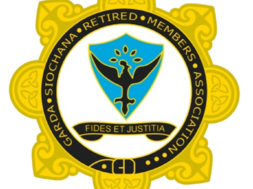Seanad Éireann
Thursday, 11 June 2015
_________________________________
“That Seanad Éireann resolves that sections 2 to 4, 6 to 12, 14 and 17 of the Offences against the State (Amendment) Act 1998 (No. 39 of 1998) shall continue in operation for the period beginning on the 30th June 2015 and ending on the 29th June 2016.”
_________________________________
Speech by the Minister for Justice & Equality, Ms Frances Fitzgerald T.D.
The House will be aware that the Offences Against the State (Amendment) Act 1998 was enacted in the wake of the murder of 29 people by the Real IRA in Omagh on the 15th of August that year. It was a necessary response to that atrocity and the loss of 29 innocent lives.
That bombing and those murders represented a direct attack also on the fragile peace process and indeed on this State. It demanded a resolute response from the State and a clear statement that the morally bankrupt culture of death adopted by these murderers would not prevail over the will of the majority in this island who wished to live in peace.
There was a clear necessity to provide strong legislative powers to ensure that the Gardaí and the Courts were in a position to meet the challenge laid down by those opponents of peace. In that regard, the Offences Against the State (Amendment) Act 1998 provided that response.
It is right at the outset that I pay tribute to the excellent work of An Garda Siochana and the Police Service of Northern Ireland in countering the threat from the paramilitary organisations. Their ongoing seamless cooperation has foiled many attacks and saved the lives of innocent people.
The Act contains a series of amendments to the Offences against the State Acts 1939 to 1985 to make them more responsive to the threat from certain groups. Principally, these amendments concern:
§ changes in the rules of evidence for certain offences under the Acts, including the drawing of inferences in certain circumstances,
§ the creation of new offences, such as directing an unlawful organisation, possession of certain articles and collecting information, and
§ extending the maximum period of detention permitted under section 30 of the 1939 Act to 72 hours.
Section 18 of the 1998 Act, as amended by section 37 of the Criminal Justice Act 1999, provides that sections 2 to 4, 6 to 12, 14 and 17 must be renewed by the Oireachtas at specified intervals if they are to remain in force. By virtue of resolutions passed by both Houses of the Oireachtas in June 2014, these sections were continued in force for a period of 12 months.
Renewal of the Provisions
Prior to moving any motion for renewal, the Act requires that I lay before the Oireachtas a report on the operation of the relevant provisions. The present report covers the period from 1 June 2014 to 31 May 2015. The report was laid before the House on the 10th June 2015. It also includes, following a commitment given previously, a table showing the figures for each of the years since the Act came into operation. This table is helpful in showing the importance of the Act in equipping the Gardaí to detect and prevent terrorist actions.
It is the fervent wish of the Government and, no doubt, this House, that the time will come when these provisions will no longer be required. But as Minister for Justice and Equality, I must take into account the reality of the situation.
In that regard the Garda assessment, shared by the Police Service of Northern Ireland (PSNI), in relation to the terrorist threat level in Northern Ireland is that it is regarded as severe. We all know that those groups vehemently opposed to peace seek to attack the institutions of Northern Ireland and destabilise the peace process. They will never succeed.
While the direct threat level in this jurisdiction may be different, it is imperative that our laws and our police are properly equipped to deal with the threat, whether in this jurisdiction or Northern Ireland; and let no one be under any illusion that these groups do not represent a threat to this State as well as to Northern Ireland. It is a clearly established fact that these groups operate hand in hand with organised criminals and in their behaviour are indistinguishable from such elements. Any ideology, if indeed it was ever possessed by them, has long ago been eroded by a culture of extortion kidnappings, beatings, and drug dealing.
The Gardaí must have at their disposal the appropriate measures to meet this threat. The powers available under the 1998 Act are considered paramount in maintaining effective preventative action against the terrorist groups. Consequently there is a clear need for the continuance of these provisions.
North/South cooperation in the area of security is vital and I can give the House the assurance that it has never been better. As was the case with my predecessors I maintain close contact with the Secretary of State for Northern Ireland, Theresa Villiers and with the Northern Ireland Minister of Justice, David Ford. In addition, the Garda Commissioner maintains close and frequent contact with her counterpart in the PSNI and this relationship is mirrored by contacts between the two forces at every level.
While countering the threat posed by terrorist groups is very important, it is necessary not to lose sight of the threat from international terrorism. The 1998 Act grew out of our own domestic troubles. However, its provisions form an essential element of the State’s response to the threat of terrorism from any source. As seen with events in Paris and Belgium and the continuing conflict in Syria, we cannot ignore the growth in recent years of the international terrorist threat. In co-operation with our EU partners, we must continue to counteract any threat from such sources. The 1998 Act forms part of the response to that threat also, as does the recently commenced Criminal Justice (Terrorist Offences) Act 2015 which came into force on the 8th June.
It is the firm view of the Garda Síochána that the Act continues to be a most important tool in its ongoing efforts in the fight against terrorism. The Garda authorities have stated that the provisions of the Act are used regularly, which is evident from the Report which I have laid before the House. It is essential, I believe, that the Act’s provisions should continue in force to support the ongoing investigation and disruption of terrorist activity.
Operation of the provisions of 1998 Act
I would like to turn to the provisions of the 1998 Act which are the subject of the resolution. As I mentioned, on the 10th June, I laid before the Houses a Report on the operation of the relevant sections between 1 June 2014 and 31 May this year. The Report demonstrates the value of the relevant sections to the Gardaí and the necessity for their continued availability in tackling the terrorist threat.
Looking at the sections themselves, Section 2 allows a court, in proceedings for membership of an unlawful organisation, to draw appropriate inferences where an accused person fails to answer or gives false or misleading answers to questions. However, a person cannot be convicted of the offence solely on the basis of such an inference. There must be some other evidence which points towards a person’s guilt. The section was used on 42 occasions in the period covered by the report.
Section 3 requires an accused, in proceedings for membership of an unlawful organisation, to give notification of an intention to call a person to give evidence on his behalf. This section was not used in the period in question.
Section 4 provides that evidence of membership of an unlawful organisation can be inferred from certain conduct, including matters such as ‘movements, actions, activities, or associations on the part of the accused’. This section was used once in the period covered by the report.
Section 6 creates the offence of directing the activities of an organisation in respect of which a suppression order has been made under the Offences against the State Act 1939. This section was used once in the period covered by the report.
Section 7 makes it an offence to possess articles in circumstances giving rise to a reasonable suspicion that the article is in possession for a purpose connected with the commission, preparation or instigation of specified firearms or explosives offences. It was used on 21 occasions.
Section 8 makes it an offence to collect, record or possess information which is likely to be useful to members of an unlawful organisation in the commission of serious offences. This Section was not used in the reporting period in question.
Section 9 makes it an offence to withhold certain information which might be of material assistance in preventing the commission of a serious offence or securing the apprehension, prosecution or conviction of a person for such an offence. It was used on 10 occasions.
Section 10 extends the maximum period of detention permitted under Section 30 of the Offences against the State Act from 48 hours to 72 hours, but only on the express authorisation of a judge of the District Court following an application by a Garda of at least Superintendent rank. Furthermore, the person being detained is entitled to be present in court during the application and to make, or to have made, submissions on his behalf. An extension was applied for in 20 cases and granted in 19.
Section 11 allows a judge of the District Court to permit the re-arrest and detention of a person in respect of an offence for which he was previously detained under Section 30 of the Offences against the State Act but released without charge. This further period must not exceed 24 hours and can only be authorised where the judge is satisfied on information supplied on oath by a member of the Garda Síochána that further information has come to the knowledge of the Garda Síochána about that person’s suspected participation in the offence. It was used on 18 occasions.
Section 12 makes it an offence for a person to instruct or train another person in the making or use of firearms or explosives or to receive such training without lawful authority or reasonable excuse. It was not used in the period covered by the report.
Section 14 is, in effect, a procedural section which makes the offences created under sections 6 to 9 and 12 of the 1998 Act scheduled offences for the purposes of Part V of the 1939 Act. This means that persons suspected of committing these offences may be arrested under Section 30 of the 1939 Act. It was used on 9 occasions during the period under Report.
Section 17 builds on the provision in the Criminal Justice Act 1994 providing for the forfeiture of property. Where a person is convicted of offences relating to the possession of firearms or explosives, and where there is property liable to forfeiture under the 1994 Act the court is required to order the forfeiture of such property unless it is satisfied that there would be a serious risk of injustice if it made such an order. The section was not used in the reporting period in question.
As the Report indicates a number of sections, namely Section 3 (Notification of witnesses) Section 8 (unlawful collection of information) Section 12, (training persons in the making or use of firearms) and Section 17 (forfeiture of property) were not utilised during the reporting period in question. It should however not be inferred from this lack of use that these provisions are in some way redundant or unnecessary as the usage of the different Sections can vary from year to year.
The existence of the provisions means that members of terrorist groups are aware that the State remains resolute in its determination to use every lawful means to defeat them. I might point out, incidentally, that far from being redundant, Section 12 has in effect been strengthened by a provision in
the Criminal Justice (Terrorist Offences) (Amendment) Act 2015 which creates the three new offences of Public Provocation to commit a Terrorist Offence, Recruitment for Terrorism and Training for Terrorism. These offences carry sentences of up to 10 years imprisonment on conviction on indictment.
Conclusion
As I have already stated, terrorist groups remain a threat to the peaceful lives of people on this island. They are opposed to the benefits that have flowed from the peace process and are determined to undermine it. The State must retain, in its laws, the capacity to defeat them.
On the basis of the information set out in the Report and on the advice of the Garda authorities I consider that the House should approve the continued operation of the relevant provisions of the 1998 Act to remain in operation for a further 12 months commencing on the 30th June 2015.
I commend the motion to the House.









